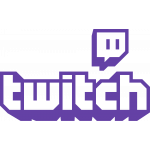How to Get to a LAN Tournament
Participation in a LAN tournament represents an important milestone in the career of any esports player. Many players wonder how to get into a LAN tournament and what is needed for that. Offline competitions differ from online formats by a special atmosphere and higher demands on participants. Proper preparation for participation in a LAN tournament requires solving organizational, technical, and psychological tasks. This guide provides a systematic approach to achieving this goal.
Choosing the Right LAN Tournament and Studying the Requirements
The first step on the way to participating in a LAN tournament is analyzing the available competitions. Local and regional events have less strict requirements for beginners. Studying the rules includes checking age restrictions and game ranking. The requirements for participation in a LAN tournament usually include having a team or partners for certain disciplines. It is important to evaluate the prize fund and the level of competition to adequately assess the chances. Familiarizing yourself in advance with the format helps to set expectations.
Team Formation and Role Distribution
For team disciplines, successful participation in a LAN tournament begins with creating a balanced team. Players are selected based on skill level and psychological compatibility. Clear distribution of game roles increases the effectiveness of interaction. Appointing a captain and a strategic leader simplifies decision-making. Regular joint training sessions develop team synergy. Agreements on dividing potential prize money prevent conflicts.
Qualification Stage and Tournament Selection
Most prestigious competitions hold preliminary selection for esports tournaments through online qualifications. Team registration is done through the official organizers' portals. Preparation for LAN tournament qualification includes studying the bracket format and match schedule. Analyzing potential opponents through demo recordings increases the chances of success. Technical preparation of game accounts and equipment is mandatory for uninterrupted performance. Psychological readiness for a highly competitive environment determines passing the selection.
Technical Preparation and Equipment
Quality preparation for a LAN tournament includes assembling the necessary technical equipment. Personal gaming gear must comply with competition standards. Clarify in advance the allowed models of mice, keyboards, and headsets. Backup copies of drivers and configuration files will prevent technical failures. Checking equipment compatibility with tournament stations minimizes surprises. Knowledge of the rules regarding the use of personal devices is mandatory for offline esports tournaments.
Financial Planning and Logistics
Participation in a LAN tournament requires careful budgeting and travel planning. Calculation of travel and accommodation expenses is done in advance. Accounting for food and additional needs helps to avoid unforeseen situations. Studying the venue location and infrastructure facilitates adaptation. For international competitions, timely processing of visas and documents is important. Considering sponsorship support or crowdfunding options makes the path to esports through LAN tournaments more accessible.
Psychological Preparation and Game Strategy
Mental readiness for the offline format differs from online performances. Preparation for a LAN tournament includes simulating tournament conditions during training. Developing strategies for different competition stages increases team flexibility. A contingency plan reduces stress. Studying the behavior of potential opponents in an offline environment gives a tactical advantage. Practicing communication amid noise and distractions is useful for beginners in LAN tournaments.
Registration and Compliance with the Rules
Official registration for an esports tournament requires attention to detail. Timely submission of applications with a full set of documents is mandatory. Studying the code of conduct and dress code prevents disqualification. Knowing the schedule of mandatory briefings and events is essential. Preparing identification documents simplifies accreditation procedures. Careful reading of the participant contract protects players' rights.
Adaptation on Site and Working with Organizers
Effective participation in a LAN tournament depends on quick adaptation to the gaming zone. Familiarizing with the layout of the venue in advance saves time. Establishing contact with administrators and technical staff resolves operational issues. Testing equipment before official matches reveals potential problems. Observing timings and performance schedules demonstrates professionalism. Understanding appeal procedures and dispute resolution is necessary for offline esports tournaments.
Post-Tournament Analysis and Career Development
After the competition ends, the importance of performance analysis cannot be overstated. Reviewing played matches reveals the strengths and weaknesses of the team. Maintaining contacts with organizers and other participants expands the network of professional connections. Using the media opportunities of the tournament increases the team's recognition. The experience gained from participating in a LAN tournament becomes a valuable asset for future competitions. Planning the next steps in a career is based on the results of the performance.
Conclusion: A Systematic Approach to Achieving the Goal
Getting into a LAN tournament requires comprehensive preparation and a disciplined approach. Understanding how to get into a LAN tournament allows you to solve emerging tasks step by step. From beginner teams to experienced collectives — everyone can find a suitable competition level. Continuous skill improvement and strategic planning open the way to esports through LAN tournaments. Participation in offline competitions provides invaluable experience and accelerates professional growth in the competitive esports industry.
Our Services for Streamers
Our Services for Content Creators











